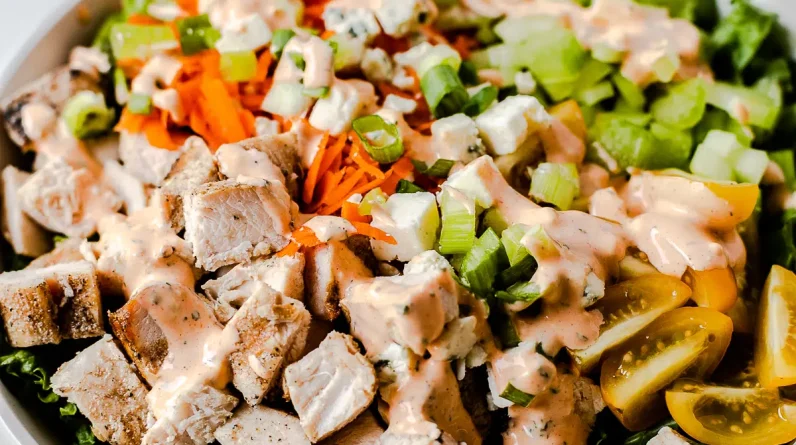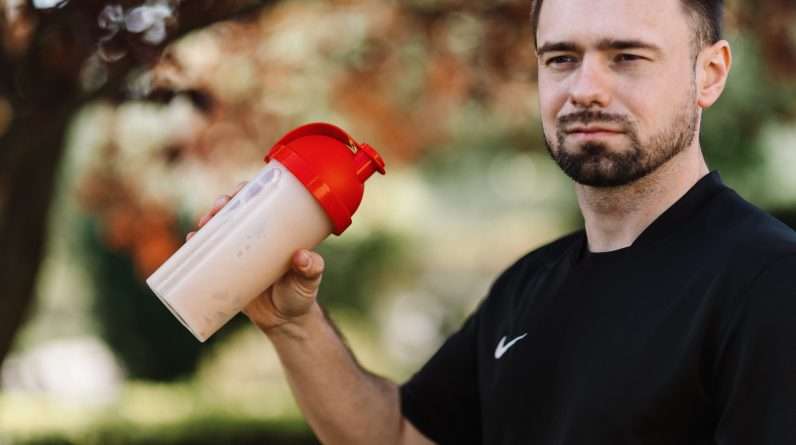
Optimizing Muscle Gain: A Comprehensive 10-Day Meal Plan
Gaining muscle requires a combination of regular strength training exercises and a well-balanced diet that provides the necessary nutrients to support muscle growth. To help you on your journey to building muscle mass, we have designed a 10-day meal plan that focuses on providing adequate protein, healthy carbohydrates, and essential fats. Remember, consistency and dedication are key, so follow this meal plan alongside a suitable workout routine for optimal results.
Day1:
Breakfast:
- Scrambled eggs with spinach and tomatoes
- Whole-grain toast
- Greek yogurt with berries
Lunch:
- Grilled chicken breast
- Quinoa salad with mixed vegetables
- Avocado slices
Snack:
- Protein shake with almond milk and a banana
Dinner:
- Baked salmon
- Brown rice
- Steamed broccoli and carrots
Day2:
Breakfast:
- Protein pancakes made with oats and banana
- Peanut butter
- Mixed berries
Lunch:
- Turkey or tofu wrap with whole-grain tortilla
- Hummus and vegetable sticks
Snack:
- Greek yogurt with honey and almonds
Dinner:
- Lean beef or plant-based protein alternative
- Sweet potato wedges
- Grilled asparagus
Day3:
Breakfast:
- Oatmeal topped with mixed nuts, seeds, and sliced banana
- Glass of milk or plant-based milk
Lunch:
- Chickpea salad with mixed greens, cucumber, and cherry tomatoes
- Olive oil and lemon dressing
Snack:
- Cottage cheese with sliced peaches
Dinner:
- Grilled chicken or tempeh
- Quinoa with roasted vegetables
- Steamed green beans
Day4:
Breakfast:
- Vegetable omelette with whole-grain toast
- Fresh fruit salad
Lunch:
- Tuna or tofu salad with mixed greens and whole-grain crackers
- Avocado dressing
Snack:
- Protein bar
Dinner:
- Grilled shrimp
- Brown rice pasta with marinara sauce and sautéed vegetables
Day5:
Breakfast:
- Greek yogurt with granola and mixed berries
- Glass of milk or plant-based milk
Lunch:
- Grilled chicken or seitan wrap with whole-grain tortilla
- Sliced avocado and salsa
Snack:
- Hard-boiled eggs
- Baby carrots
Dinner:
- Lean steak or plant-based protein alternative
- Quinoa pilaf with roasted vegetables
- Steamed Brussels sprouts
Day6:
Breakfast:
- Protein smoothie made with almond milk, spinach, banana, and almond butter
Lunch:
- Grilled salmon or tofu with lemon dill sauce
- Quinoa tabbouleh salad
Snack:
- Greek yogurt with honey and walnuts
Dinner:
- Turkey or bean chili with kidney beans and vegetables
- Baked sweet potato
Day7:
Breakfast:
- Whole-grain toast with avocado and poached eggs
- Mixed fruit salad
Lunch:
- Grilled chicken or tempeh with mixed greens and quinoa
- Balsamic vinaigrette
Snack:
- Protein shake with almond milk and mixed berries
Dinner:
- Baked cod or tofu
- Brown rice
- Sautéed zucchini and bell peppers
Days 8-10:
Repeat the meal plan from Days 1-3, adjusting portion sizes as needed to meet your caloric goals.
General Tips:
Gaining muscle requires a combination of proper nutrition, regular strength training, and lifestyle choices that support muscle growth. Here are 10 general tips to help you on your journey to gain more muscle:
Consume Sufficient Protein: Protein is essential for muscle repair and growth. Aim to consume high-quality protein sources such as lean meats, poultry, fish, eggs, dairy products, legumes, and plant-based proteins like tofu and tempeh.
Eat Balanced Meals: Ensure that your meals consist of a balance of protein, complex carbohydrates, and healthy fats. Include a variety of fruits, vegetables, whole grains, and sources of healthy fats like avocados, nuts, and olive oil.
Caloric Surplus: To build muscle, you need to consume more calories than you burn. Aim for a slight caloric surplus by adding nutrient-dense foods to your meals and snacks. Consult with a registered dietitian to determine the appropriate caloric intake for your goals.
Regular Strength Training: Engage in resistance training exercises at least three to four times per week. Focus on compound exercises such as squats, deadlifts, bench presses, and rows that target multiple muscle groups simultaneously.
Progressive Overload:
Continuously challenge your muscles by gradually increasing the weight, sets, or repetitions in your workouts. This progressive overload stimulates muscle growth and strength gains.
Sufficient Rest and Recovery: Allow your muscles to recover and grow by incorporating rest days into your training schedule. Aim for seven to nine hours of quality sleep each night to optimize recovery.
Hydration: Drink enough water to support optimal muscle function. Dehydration can impair performance and hinder muscle growth. Aim for at least eight glasses (64 ounces) of water per day, or more if you engage in intense physical activity.
Limit Processed Foods and Added Sugars: Minimize your intake of processed foods, sugary snacks, and beverages. These provide empty calories and may hinder your progress. Instead, choose whole, nutrient-dense foods to fuel your body.
Pre- and Post-Workout Nutrition: Consume a balanced meal or snack that includes carbohydrates and protein before and after your workouts. This provides your body with the necessary fuel and nutrients for optimal performance and muscle recovery.
Consistency and Patience:
Building muscle takes time and consistent effort. Stay committed to your training and nutrition plan, and be patient with the process. Results may not happen overnight, but with persistence, you will see progress.
Remember, it’s always a good idea to consult with a healthcare professional or certified fitness trainer who can provide personalized guidance tailored to your specific needs and goals.
well-designed 10-day meal plan serves as a solid foundation for muscle gain. By providing a strategic balance of macronutrients, adequate calories, and nutrient-dense foods, individuals can fuel their workouts, promote muscle recovery, and optimize overall health. It is important to remember that individual variations exist, and consulting with a qualified nutritionist or dietitian can help tailor a meal plan to specific needs and goals. Combined with consistent training and rest, this meal plan can be a valuable tool for those seeking to gain more muscle mass.






